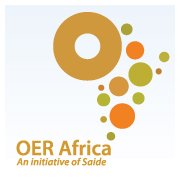



When using internet resources, you need to be careful, as most websites do not undergo peer review. It is therefore important to evaluate the website that you use to get your information from.
Be particularly careful when consulting Wikipedia and similar internet sites as the authority and reliability of the content cannot be guaranteed.
When deciding if a webpage is reliable, you should ask yourself the following questions.
| Reasoning | |
| Who? | Only cite authors who have some credentials that qualify them to talk about the subject. |
| What? | Identify the type of research you need--most online forums, blogs, or presentations are not peer reviewed. |
| When? | Use research from websites that are regularly maintained to insure that the information isn't outdated. |
| Where? | Material should be available on academic websites--pay attention to the quality of the website. Avoid .coms and .nets. |
| Why? | Know why you need the information, and also why the information was published. Avoid biased websites. |
| How? |
Webpages should cite their information so you know how the information was gathered. |


Open Educational Resources are teaching, learning, and research resources that reside in the public domain or have been released under an intellectual property licence that permits their free use and repurposing by others. OER include full courses, course materials, modules, textbooks, streaming videos, tests, software, and any other tools, materials, or techniques used to support access to knowledge. (Hewlett Foundation, OER Defined).
Source: https://www.oerafrica.org/understanding-oer/definitions
Principles of Management is designed to meet the scope and sequence requirements of the introductory course on management. This is a traditional approach to management using the leading, planning, organizing, and controlling approach. Management is a broad business discipline, and the Principles of Management course covers many management areas such as human resource management and strategic management, as well behavioral areas such as motivation. No one individual can be an expert in all areas of management, so an additional benefit of this text is that specialists in a variety of areas have authored individual chapters.

Confucian values of trustworthiness, self-criticism, and dignity can provide resources for Westerners doing business in China. Kirk O. Hanson, executive director of the Markkula Center for Applied Ethics, interviews Stephan Rothlin, general secretary of the Center for International Business Ethics in Beijing.
Creative Commons Attribution Non-Commercial No Derivatives 